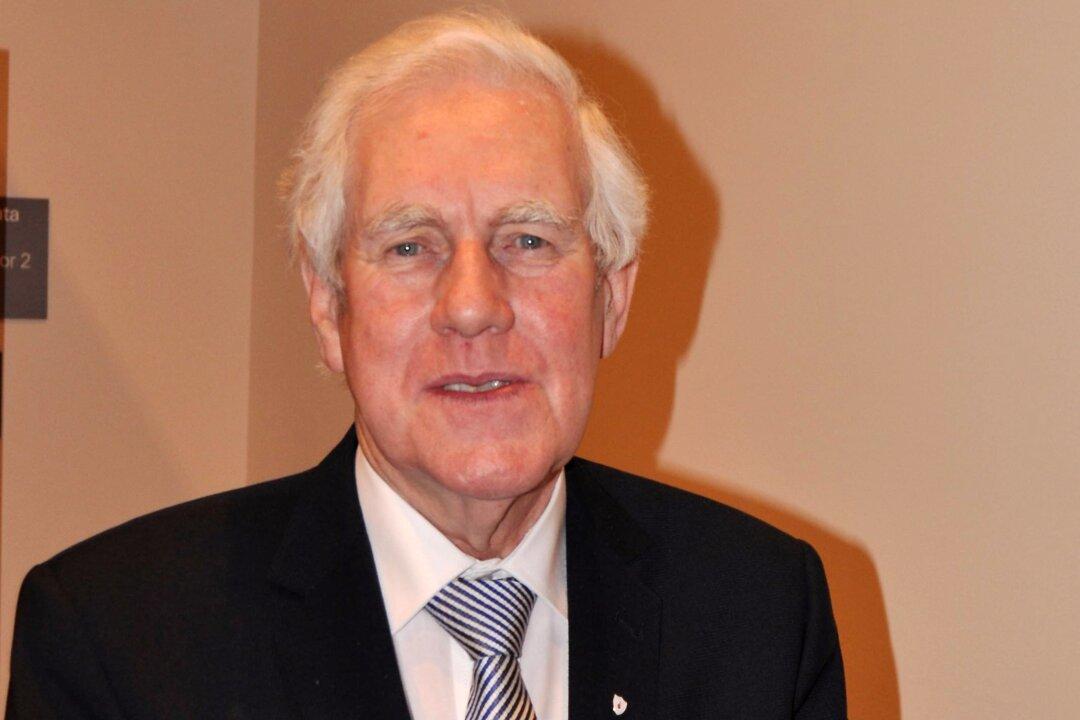Recently, The Epoch Times spoke to Regina Doherty about her experience running the Meals on Wheels service in Ratoath in Co. Meath. Ms Doherty said that the biggest issue she encounters in her work is the profound loneliness and isolation she observes among older members of the community who live alone.
The Epoch Times: Ms Doherty, how did you get involved with Meals on Wheels in the Meath area?
Regina Doherty: My mother-in-law lives in Ashbourne, and she was one of the founding members of Meals on Wheels in Ashbourne twenty-odd years ago. At the time, she did the meals and my father-in-law collected them—it was kind of a family gig. So we were chatting one day and I asked her if she did Meals on Wheels in my neck of the woods—in Ratoath, which was then I discovered that no, there was no Meals on Wheels service in Ratoath. So I thought about it, and decided to give it a bash. In the beginning I just replicated the system she had, which was that the meals were cooked in the Ashbourne House Hotel, and then a driver would collect the dinners and deliver them to the clients we had, who were spread around the parish of Ratoath.
Epoch Times: It must be a huge logistical challenge to organise the food and the deliveries—how does Meals on Wheels work?
Ms Doherty: For the first year we used the same hotel to prepare the food, but when somebody in Ratoath became available to produce the food, I renegotiated to get the food prepared there. Now I do the administration, as well as doing the deliveries on Fridays. On Sunday nights I do up the roster and send out my text message to the drivers. I put the order in to Centra, and we deliver meals on Mondays, Wednesdays, and Fridays.
Epoch Times: Is nutrition for people unable to prepare proper meals the motivation behind Meals on Wheels, or is there something deeper?
Ms Doherty: The idea behind the meals is twofold. Firstly, it’s grub: most of the people we deliver to live on their own and, actually, most of the clients are men. So it’s a hot meal: meat, veg, potatoes, gravy, and dessert if that’s what they want. And it’s providing and delivering a hot meal to their house—we are making sure that they are getting fed. But actually it has kind of morphed into a more important service than just the meal, because a lot of people we deal with don’t see anybody else from one end of the week to the other, so they have developed relationships with the drivers.
Epoch Times: So the drivers don’t merely deliver the food?
Ms Doherty: There are different drivers each day. In some cases the drivers are the only people they see, so there is a social aspect to the service. And there is the gossip—sure we know everything about everybody! There is a huge social aspect to what we do too, and they are gorgeous people that we deal with. The drivers and volunteers that we have are just fab!
Epoch Times: Is the Meals on Wheels service always the same, regardless of location?
Ms Doherty: I do it slightly differently to Ashbourne, as they have a huge amount of volunteers so they can work out rotas on a monthly basis. I don’t have time for that—I just have 4 drivers, the same person does Mondays, another person does Wednesdays, and my Dad and I do Fridays. Because of this consistency, the clients have built up a great rapport with the drivers over the years. We are kind of all pals now, which helps us to keep in touch with the people.
Epoch Times: Why Meals on Wheels? Or are there other ways in which you could give to the community?
Ms Doherty: Previously, I had been involved with an organisation that tried to help the elderly in the community, where we would maybe give them lifts to hospitals and other locations if needed. However, I felt that that type of service created a ’manufactured' relationship with the people utilising the service, whereas the current Meals on Wheels model feels natural, and real relationships have been created between those using and those providing the service. Over the years our relationships have grown, and the only time we lose clients is when they pass away, which is awful.
Epoch Times: You repeatedly mention the word ’relationship'—is this important for the recipients, or for the volunteers?
Ms Doherty: We don’t just knock on the front door, run in, and say, “here’s your meal, good luck”: there’s a friendship that has been built up over the years, and I think that’s very much appreciated by the people, and in particular the gentlemen, that we deliver to.
The volunteers that we have are all older people too, so they have time on their hands and aren’t in such a rush. Initially it was their way of giving something that helped the community, but they get as much out of it now as the people who are receiving get out of it, because they develop friendships too over the years. It’s good—it just works.
Epoch Times: What are the major issues facing elderly people in Ireland today?
Ms Doherty: I could bore you to death with the difficulties that we have with home care packages, and it all stems from the fact that home care is not on a statutory basis in this country, as opposed to nursing home care which is on a statutory basis. There is a penchant for people to be put in nursing homes when there is no need for them to be put in nursing homes, and simply because they can’t access the care that they need. To allow them to remain in their own home—THAT'S a policy issue that needs to be addressed.
Epoch Times: Ms Doherty, can you tell us one thing you have learned from working with older people through Meals on Wheels?
Ms Doherty: The single biggest issue that I experience with older people—and not just for Meals on Wheels but in my day job—is loneliness. They just love having somebody to talk to—absolutely love it. They eat and drink it…it’s very sad in a way because it’s so easy to fix, just for somebody to call in and say ‘hello’, to have a cup of tea. We have very positive Age Action groups right across this area, but not everybody wants to go to an active age meeting on a Friday morning. Actually, they are predominantly attended by women. We now have a gross of men’s sheds, but I normally find that where other men’s sheds have been established, they tend to be visited by men in their 50’s and 60’s who have probably lost their jobs or have retired through ill health, whereas in actual fact, the real loneliness is not with that age group—it’s older men, especially those in their 70’s who have lost their wives.
Epoch Times: Ms Doherty, thank you for speaking with us.
Ms Doherty: Thank you.



